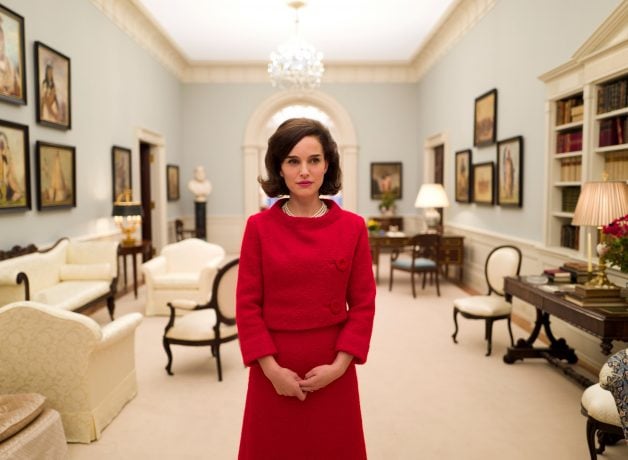
If anyone knows how to make an entrance it’s Pablo Larraín. After wowing the Spanish-speaking world with movies such as No and The Club, Larraín has made a splash in the English-speaking world by not only tackling the subject of one of the United States’s most remembered presidents, but by creating a masterpiece that has captured the Academy’s attention. I went along to see Jackie for myself at Manchester’s HOME cinema.
Jackie examines the aftermath of JFK’s shooting, giving voice to the woman who stood by his side during and after his time in office. Structured around an interview with an unnamed journalist (Billy Crudup), the film offers a multi-dimensional character who exudes poise and elegance, and yet is breaking apart beneath her mask of First Lady. Natalie Portman has unsurprisingly won and been nominated for various awards for her leading role as Jacqueline “Jackie” Kennedy since the film’s release. She is able to recreate the woman America was familiar with, the one that took the country on a ‘Tour of the White House’, yet at the same time shows the cracks behind Jackie’s composed attitude, especially during scenes in which she is alone. This is a character the media would not have seen, yet Larraín ventures into her mindset, exploring the trauma one feels after watching their husband get shot mere centimeters away from one’s own head. As the journalist continues to ask her questions, Jackie teasingly switches back and forth from her public and private self, between raw emotion and composure, reminding him that at the end it will be she who decides how he is to portray her: “Don’t think for one second I’m going to let you publish that”. Portman was given the enormous responsibility of carrying the movie; there is scarcely a scene in which she is not the centre of attention. Nonetheless, she does Jackie justice, transforming one of history’s supporting characters into a fully developed protagonist.
However, Portman’s performance alone was not what allowed the successful recreation of Jacqueline Kennedy. Making use of flashbacks and time jumps, Larraín presents the audience with a fragmented narrative that mirrors Jackie’s broken state, following no clear, chronological line of thought. The constant zoom on her face and reflection emphasizes the omnipresent gaze of the public as they watched her organize her husband’s funeral, meanwhile a new presidency pushed her out of her home. We see a woman that, although never alone, is lonely, for she is not allowed the necessary time to mourn her husband’s death. This solitude is best captured by Mica Levi’s original score, a beautiful play between strings and silence that will both entice and cause the viewer discomfort as it draws them into the eerie world of isolation that Jackie finds herself in.
It is also interesting to consider the timing of Jackie. During the months of its release we have seen the American government undergo a profound transformation, not least the change of First Lady. Michelle Obama could arguably be one of the most beloved First Ladies of the government’s history, and so it would not be a stretch to assume this film is a tribute to her time in the White House. However, on closer inspection, one notices certain similarities between Jacqueline Kennedy and Melania Trump: two beautiful women that accidentally ended up in the position of First Lady. However, appearances are nothing to go by, as is clearly demonstrated in a scene where Jackie confronts her brother-in-law, hissing that he may think she is just “some silly little débutant”, adamant that that she is more than that. The film could therefore be seen as a sign of hope, a reminder that beneath assumed frivolity and shallowness, a First Lady can hold more strength and control than her appearances indicate. Perhaps it is not a glance at the past, but a projection of hope onto the future First Lady of the United States.
Filed under: Film, TV & Tech
Tagged with: film, HOME, Jackie, Jacqueline Kennedy, manchester, Natalie Portman, Pablo Larrain



Comments